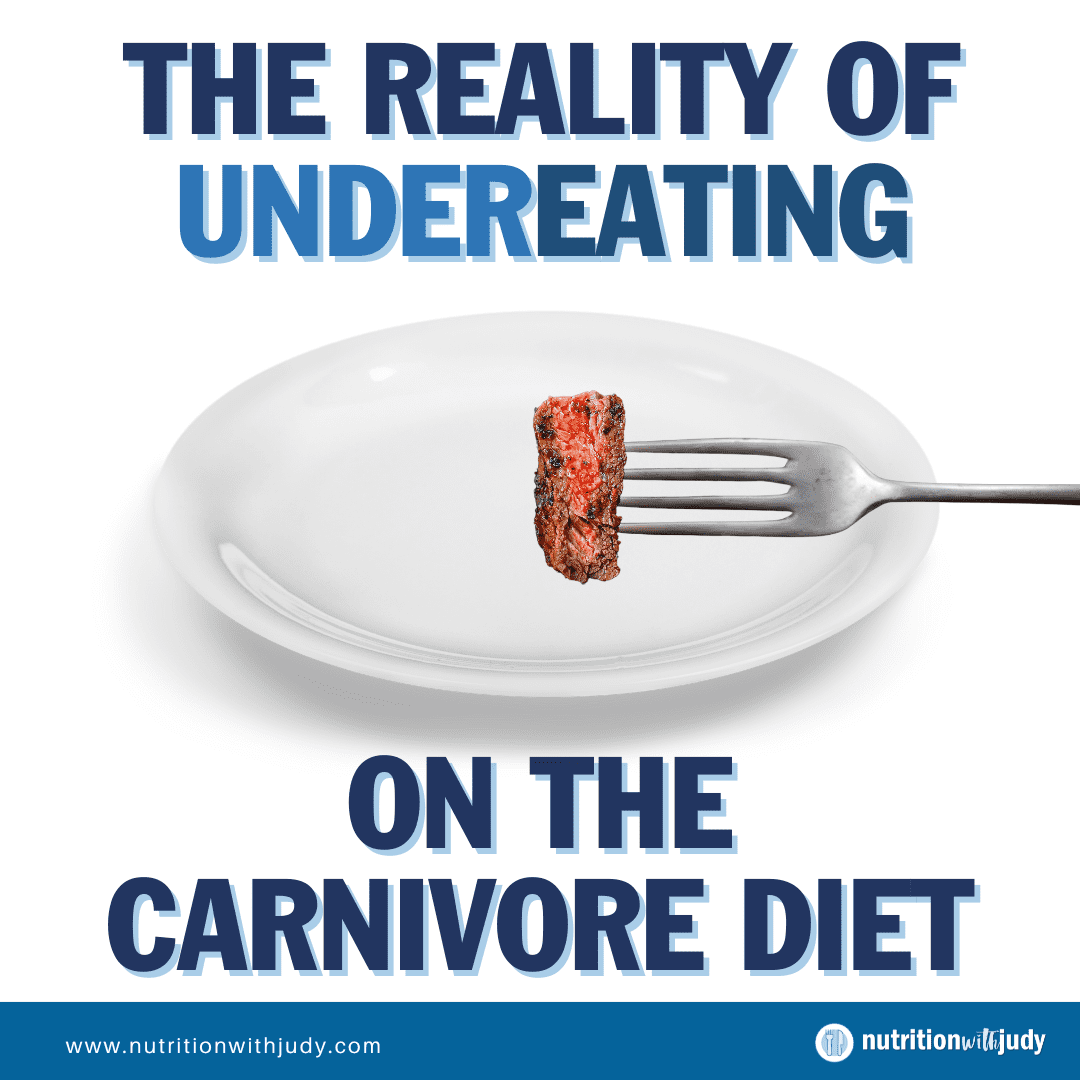

The Reality of Undereating on the Carnivore Diet


The carnivore diet is celebrated for many reasons ranging from gut healing to autoimmune support and remission. While this way of eating offers a powerful healing modality, it does require some tinkering to make it optimal for your specific needs. When we start a carnivore diet an issue a lot of people run into initially is not eating enough. We know in our past lives on the Standard American Diet (SAD) we usually had the opposite problem, so you might be thinking…What? Undereating? Hear us out– this is actually a pretty common problem, especially for those just starting the carnivore diet. There are some serious risks and consequences with undereating on a carnivore diet so let’s take a deeper look at why the SAD leads to overeating, the impact of nutrient deficiencies on hunger signal hormones, and what the symptoms of undereating are.
Why the Standard American Diet Leads to Overeating
When we eat a SAD or some version of it, it becomes quite easy to overeat. There are quite a few reasons for this:
1. Processed food is easy to crave
Most foods that people eat on SAD are processed foods. These foods are designed to be hyper-palatable, meaning that they taste super good. This is by design. Because these are not made in nature, but rather a lab, scientists have determined just the right amounts of just the right ingredients to make us addicted and unable to stop eating them.
2. Junk food is usually less expensive than healthy food
Most often it is much cheaper to buy soda and candy than it is to buy meat and vegetables. This is an issue because most of us eat what we can afford and if all we can afford is processed food, it sets us up for health problems down the road.
3. Convenience food is accessible immediately
Hungry? No need to wait for that steak to grill, just pop open a bag of chips or some pizza rolls in the microwave. Throughout human history, food was hard to come by and most of our days were spent securing access to it. But now, it is everywhere, no need to work or wait, so we have lost some of our willpower because we are genetically designed to pig out on food when it is available. After all, in the past who knew when the next meal was coming?
4. Tasty food lights up the brain with feel-good chemicals
Why does every rom-com character eat ice cream when they go through a breakup or have a hard day? Because it makes them feel better. Eating fast food, ice cream, or chips, for a moment, makes you forget about the problems you are experiencing. When we’re tired and stressed our bodies tend to crave foods we find “comforting” and we usually wind up indulging ourselves because we can justify it as self-care.
5. Variety keeps food interesting
Unfortunately, a lot of us use food as entertainment and it seems like we have a lot of choice. However, if you look under the hood what you find is mostly the same foods (corn & soy) in every packaged food. What you think is variety is just a manipulation, in the lab, of flavors.
When we start to gain weight and begin to become more aware of our actions of overeating, we might stop and take stock and decide to approach our diets differently. We come to realize the SAD is doing us no favors and is causing quite a bit of harm. You may find that eating a SAD diet:
- Is pro-inflammatory
- Is toxic to your liver from all the artificial colors and flavors
- Has a high glycemic index
- Is laden with hormones
- Is tainted with Glyphosate, pesticides, and herbicides
- Has antibiotics
Implementing the Carnivore Diet
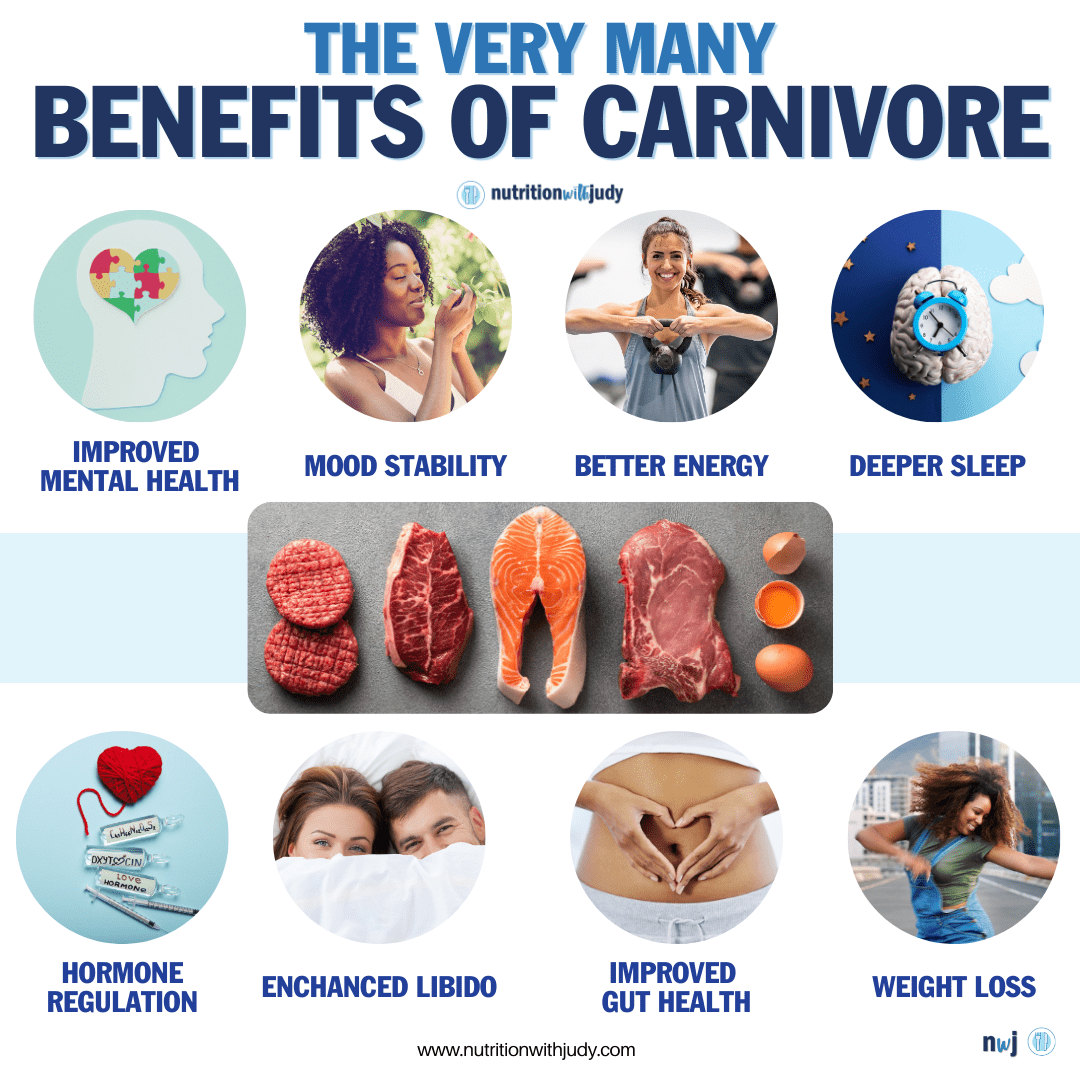

When searching for a healthy diet, many of us have stumbled upon the carnivore diet and this is where we find ourselves. However, because the carnivore diet is so incredibly satiating and likely, your body is getting enough nutrients for the first time in a long time, you may find yourself undereating. This is what we would like to address in this article.
Ruling Out Eating Disorders
But first, if you find that you are restricting your eating on a carnivore diet or have a history of restricted eating or binging, please first rule out an eating disorder. Eating disorders are not a lifestyle choice and can be serious and fatal. There are several eating disorders listed in The Diagnostic and Statistical Manual of Mental Disorders (DSM). Some of the most common are:
- Anorexia Nervosa: This is a condition when people severely restrict their food intake and are often obsessed with weighing themselves. Also, even when dangerously underweight, these individuals likely view themselves as overweight.
- Bulimia Nervosa: This condition occurs when people tend to eat an unusually large amount of food at one time and are eating in an out-of-control manner. This is called binge eating and afterward leads to purging or vomiting, using laxatives, or over-exercising to mitigate the calories they just consumed.
- Binge-Eating Disorder: This is similar to Bulimia listed above as the overconsumption or binging of food occurs, however is not followed by the purging.
If you feel you fall under one of these designations it is imperative that you get help right away and seek out your medical care practitioner.
But for many of us, we find that a carnivore diet just naturally can reduce our appetite and there are some interesting reasons why.
First, as we alluded to earlier, a carnivore diet is extremely satisfying. When you increase your protein and fat and your body is receiving so much nourishment your brain may not be sending you your usual hunger signals.
Nutrient Deficiencies and Hunger Signal Hormones
Since the SAD is woefully lacking in nutrients, your brain is constantly sending you hunger signals hoping that you’ll finally eat something nourishing. Once your body becomes sufficiently nourished from eating a carnivore diet, your brain may not send out these signals as frequently or urgently because it is not experiencing that urgent need for nutrients.
The body’s hunger signals are reliant upon two important hormones, ghrelin and leptin.
Ghrelin
Ghrelin is known as an appetite stimulator. This hormone originates in the stomach and then sends hunger signals to the brain. Researchers have noticed that obese individuals have an overactive ghrelin receptor and seem to be far more sensitive to ghrelin than their normal-weight counterparts. This means that obese individuals suffer from more severe hunger pangs which leads them to consume more calories.
Ghrelin also controls how quickly you feel hungry after a meal. After eating, ghrelin is usually suppressed for about three hours. Ghrelin levels increase if you are in a fasted state and right before the consumption of a meal.
If you are an experienced dieter, then note that dieting does cause ghrelin levels to increase thereby increasing hunger signals.
Therefore a carnivore diet is optimal because usually you feel satisfied and so these ghrelin levels don’t spike, causing tremendous hunger. Again, this could be why you might be undereating on carnivore, simply because your hunger levels are not spiking.
Leptin
Ghrelin is the increased appetite hormone and conversely, leptin does the opposite. It is known to decrease our appetites.
Leptin’s signals come from our fat cells and communicate to the brain that we have a sufficient level of fat and need not eat, so leptin acts as an appetite suppressor.
However, researchers have discovered that in obese individuals the brain may not recognize leptin signals as quickly as individuals of normal weight. This means that obese individuals may continue eating long after they are full, all because the signaling to the brain has been impaired.
If this full signal is unable to reach the brain, the body thinks that it is starving and may signal the body to store more fat. This leads to the overconsumption of calories. Also, the brain tells the body to be more sedentary to conserve calories. Over time, one can see how having this dysregulated signaling can lead to significant weight gain because of the miscommunication between the brain and the body.
If you suspect that you may suffer from suboptimal functioning of these hormone regulators, there are some steps you can take to better support these hormones:
- Avoid sugar
- Eat more fatty fish
- Reduce inflammation
- Reduce triglycerides
- Swap carbs for fat and protein
If you have switched to a carnivore diet from SAD, it may take some time for these hunger hormones to regulate. Because there is an adaptation phase as you transition to a carnivore diet, just note that your hunger signals may be off for a bit. This can lead to undereating so just be mindful and aware that you are consuming enough fat and protein to support metabolic function in your body while your hormones work through sorting themselves out.
On the flip side– some individuals experience more hunger when switching to a carnivore diet. This could be because your body is starved for certain nutrients, requiring a higher calorie intake as you transition. If this is the case, allow yourself to eat more so the body can heal and absorb all the nutrients it’s been lacking. After you’ve transitioned into this way of eating, we can adjust your macros and consider ways to achieve your desired weight from there.
Another reason you may find yourself eating less on a carnivore diet is because you will consistently, more often be in a state of ketosis. Ketosis is an elevation of ketones in the body and is common and one of the main benefits of a low-carb diet. Ketones, which are made of fat, are an energy source your body can use as opposed to using sugar as the main source of energy.
Being in a constant state of ketosis has been shown to increase insulin sensitivity. Insulin is another hormone that plays a role in hunger. Insulin is made in the pancreas and helps to regulate your body’s blood sugar. It is responsible for taking sugar from the blood and depositing it in your fat cells. Insulin sensitivity refers to how responsive your cells are to insulin.
When you improve your insulin sensitivity you can reduce insulin resistance, which leads to a decreased risk of Type 2 diabetes. Insulin resistance occurs when your blood sugar remains too high. If your blood sugar is consistently high, then your pancreas must continue pumping out more and more insulin to try to overcome the resistance and reduce blood sugar.
When you eat a carnivore or ketogenic diet, your blood sugar remains constant, therefore your insulin remains constant. When this happens, your body will naturally feel less hunger pains, so because you are becoming more insulin sensitive you may begin to inadvertently undereat, simply because you aren’t experiencing as much hunger signaling.
If you think you may be developing insulin resistance, there are some other lifestyle additions you can do to help support a healthy insulin response:
- Cutting back on carbs
- Eat more saturated fat
- Exercising
- Prioritizing sleep
- Reducing stress
- Reducing sugar consumption
A Pound of Meat Per Meal
Another reason you may find yourself undereating on the carnivore diet is that most carnivores eat about a pound of meat per meal or more. For those of us who have grown up with the Ancel Keyes world of dietary guidelines eating a pound of red meat per meal still sounds a bit much and a tad scary.
It is a huge shift to move away from a SAD to a carnivore lifestyle and even though cognitively we may recognize that eating a meat-based diet is a healthy dietary choice and one that is biologically appropriate, we may still experience a strong, negative response, buried deep in our lizard brain subconscious that makes this dietary change seem scary. Since we have a hard time embracing this diet, on a subconscious level, we may be undereating and not even realize it, just based upon past social conditioning.
People may still be stuck on the idea of what constitutes a portion size of meat. It is about the size of a deck of cards on a SAD. For a carnivore, this is not a serving of meat. A serving of meat on a carnivore diet is about a pound. A SAD meat portion is between four and eight ounces, if this is what you consider “normal” and you are eating only this amount 2-3 times per day, you are assuredly undereating on a carnivore diet. Making a conscious effort to up your meat intake will ensure you are getting adequate nutrition.
Eating a half pound to a pound of meat at a time, depending on if you eat two or three meals per day, generally isn’t too much on a carnivore diet. In fact, it is ideal. For more information regarding what the best macros are for a carnivore diet, read more here.
Signs You Might Be Undereating On Your Carnivore Diet
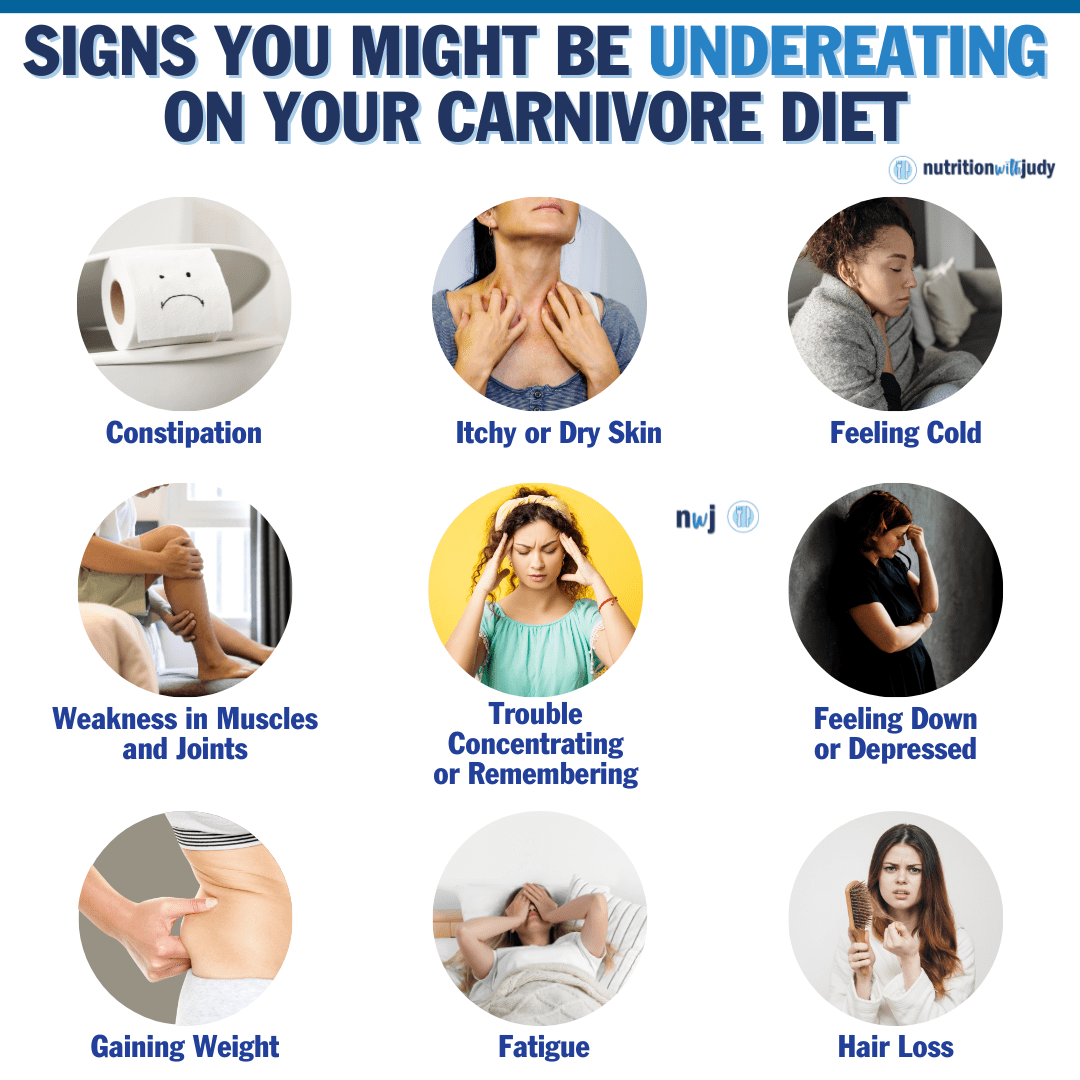

If you think you might be undereating on a carnivore diet, here are some signs you should look for:
- Constipation: If you aren’t eating enough food, there is no reason for your body to generate a bowel movement. If you find yourself chronically constipated, you might need to up your food intake so your bowels can pass.
- Fatigue: If you are consistently tired, this could be your body telling you that it does not have adequate amounts of nutrition for day-to-day activities.
- Feeling cold: Heat is a byproduct of burning calories. If you aren’t taking in enough calories your body will start to conserve and you will become more sensitive to the cold.
- Feeling down or depressed: If you aren’t consuming adequate calories and nutrition your body will start to feel run down. Whatever the body is experiencing eventually heads to the mind and you will begin to feel down. You need adequate nutrition to support your mental health.
- Gaining weight: I know this sounds counterintuitive, but it’s true. If your body isn’t getting enough nutrition, it will start holding on to weight, thinking it is in starvation mode instead of feeling safe and secure enough to release excess weight.
- Hair loss: Hair loss is another symptom that happens when we aren’t consuming adequate protein.
- Itchy and dry skin: Skin is one organ in the body that has rapid turnover. We are constantly renewing it. If we aren’t eating enough food, the process of regeneration will begin to break down and our cells won’t be as nourished, resulting in undernourished skin cells.
- Trouble concentrating or remembering: If you aren’t eating enough, your cognitive function will slow down, and you may have trouble concentrating. By being sure to get enough calories, your brain will be able to handle everything you’re asking it to do.
- Weakness in muscles and joints: Again, if you aren’t getting adequate nutrition, your body will find it from elsewhere, and usually that place is your muscles. If you consistently undereat over time, your muscles will begin wasting away, leaving you more vulnerable to disease, falls, and fractures.
Getting adequate nutrition is so valuable to overall health and well-being.
In order to make sure you are eating enough, it is necessary to use a tracker to start. We recommend something like My Fitness App to track your macros.
Ideally, you should be consuming about 0.8-1 gram of protein for every pound of ideal body weight and then 75%-80% fat. For example, if you weigh 150 pounds and that is your ideal body weight, then your protein should be between 120-150 grams per day and around 220 grams of fat to hit a 75% fat ratio.
It is easy to calculate this for a few weeks until you get the hang of it, and then you can stop.
Ideas to Get More Nutrition In Your Carnivore Diet
If you’re struggling to get enough food in your carnivore diet, here are some tips and recommendations to try:
- Add whey or protein powder to meals.
- Consider eating smaller meals more frequently to better absorb all nutrients.
- Make egg custards to consume more fat in your diet
- You can make custard cups by combining 3 eggs, 2 cups coconut milk (if tolerated or heavy cream), 6 scoops of collagen powder, vanilla, and desired sweetener, along with a few shakes of salt.
- Make soups to get adequate nutrition, you can blend them well, even the meats.
- Raw egg yolks added to everything, coffee and smoothies included.
- Scramble eggs with healthy fats for easy-to-digest, superb nutrition.
- Take zinc. Low zinc has been listed as a cause of poor appetite. If interested, you can order it here.
If you have struggled to eat enough on a carnivore diet, the Nutrition with Judy team can help. Eating the appropriate amount of food sets you up to feel great and have success.
Work With Our Trusted Carnivore Diet Functional Nutritional Therapy Practitioners
The Nutrition with Judy practice is honored to be a trusted carnivore diet practitioner support serving clients from around the globe. We’re passionate about helping our clients achieve root-cause healing in order to lead the best quality of life possible that’s nearly symptom-free. Our team is dedicated to educating our community about the incredible benefits of the carnivore diet. We welcome you to explore our free resources and are always available to support you through personalized protocols. Our Symptom Burden Assessment (SBA) is the perfect starting point for discovering your root cause and is required to work with our team— you can learn more in-depth about this powerful tool here.
Start your root-cause healing journey today and contact us any time with any questions or concerns.
DISCLAIMER: This content is for educational purposes only. While we are board-certified in holistic nutrition and are nutritional therapy practitioners, we are not providing medical advice. Whenever you start a new diet or protocol, always consult with your trusted practitioner first.




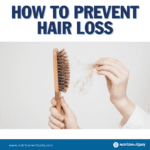
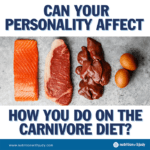
Mark Wilson
December 10, 2023 at 1:10 amI’m currently on a lean bulk, it’s challenging to eat enough meat but I do supplement with Greek yoghurt and whey protein which I tolerate well. At 62 building muscle is tough!
KerryRedmond
December 10, 2023 at 8:45 amI will be 60 in March and am a gym goer (female). I have great health, lot’s of muscle tone and was feeling really good. I am 5 weeks in on a Carnivore/animal based diet and was feeling great on it, but have hit a wall of less energy, enthusiasm and my muscle and joint pains are returning and I am pretty sure it it due to lack of enough food. I am a “eat to survive” kind of person, so it’s hard for me to get enough in everyday, but I am bent on sticking with this WOE and get it right. I too do the Greek Yogurt and animal based protein shakes, but not enough of them. I will be adding a bunch of the items that the good Dr. recommends and hopefully get back to feeling great. BTW, I also bought Dr. Cho’s book “The Carnivore Cure” and it is very helpful to have it available at all times.
Best of luck to you.
Kerry
Sera
December 10, 2023 at 6:49 amPlease create a PDF of this in your guides section!! We could’ve really used this starting carnivore, and I’m sure many other people will benefit from this as well. Thank you so much for the article and all you do!
Cass Oz
December 12, 2023 at 9:27 pmI’ve come to carnivore from 5 years keto (not SAD) and just cannot stomach that much meat/eggs. I’m accustomed to about 80g protein but my dietician wants me to eat 125g as we head into trying a 2:1 therapeutic diet as adjunct to cancer treatment. 125g of protein is hard enough without trying to add 250g of fat!!! I respect him dearly but I think we’re off track here.
Hélène
February 22, 2024 at 9:42 amHow are u doing? Did u up ur fat at all? It is challenging but it’s so calming to have all that fat. I love meat so eating a lb daily plus 4 eggs and some cheese isn’t hard for me at all. I slowly built up my fat but I’m old and sedentary so I’m not going for 250mg. If I was fighting cancer I would! Hope ur winning in ur battle, my friend beat her triple negative breast cancer (16 yr survivor plus 2 more babies after treatment) so I know it’s possible to do!
Hélène
February 22, 2024 at 9:47 amCooking directions for the custard cups? And is SIX scoops of collagen with 3 eggs, correct?? I have very good quality collagen but the svg size is 1 scoop lol The company (Perfect brand, not Perfect Keto brand) also says not to heat it, like put in coffee. They recc’d a room temp drink. Thx for any help.